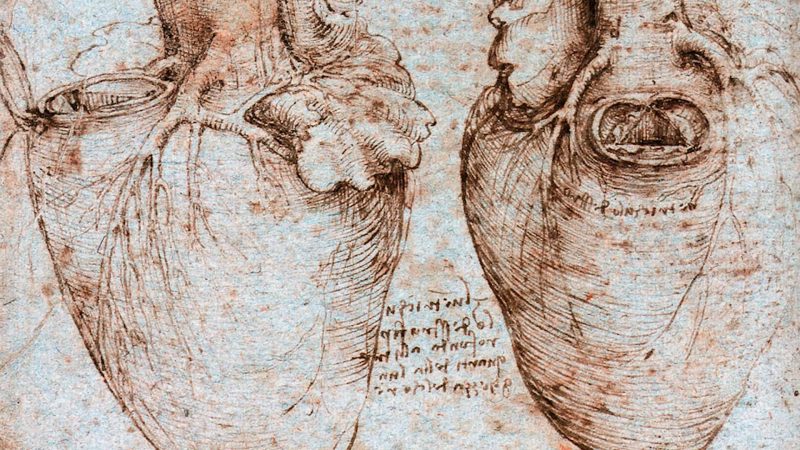
Da Vinci's sketches of the human heart.
Fortune Steers, You Row
Posted on Sep 17, 2024 by Alex Alvarez
Over the summer I read Walter Isaacson's "Leonardo Da Vinci". I think it was my favorite book read this year and it likely changed my life considerably. I've always respected Leonardo Da Vinci but I didn't know what he really did except for painting the Mona Lisa. In general, I always looked up to the people who were different, the misfits as I like to call them (including myself). The most influential movie in my life was the Steve Jobs movie with Ashton Kutcher which depicted the rise of Apple Computer. I wasn't aware of it at the time but I related to someone who was so different and I yearned for disruptive innovation. Leonardo Da Vinci is the blueprint for what we would now call a "disruptive innovator".
Discovering something 400 years before it was confirmed
Leonardo is responsible for an innumerable number of things that would make any person famous in their domain if that was the only thing they did. One of these things is when he correctly described the function of heart valves, particularly the aortic valve, around 1513. He observed that the valve's cusps (flaps) close to prevent blood from flowing backward. His observations were later confirmed centuries later in 1969 when engineers used modern equipment to film the movement of water through a glass model of the aorta, confirming Leonardo's theories about the heart valve's function and the formation of vortices (swirling patterns) in blood flow.
Connecting ideas
“I decided to take a calligraphy class to learn how to [learn calligraphy]. I learned about serif and sans-serif typefaces, about varying the space between different letter combinations, about what makes great typography great. It was beautiful. Historical. Artistically subtle in a way that science can't capture. And I found it fascinating. None of this had any hope of any practical application in my life. But 10 years later, when we were designing the first Macintosh computer, it all came back to me. And we designed it all into the Mac. It was the first computer with beautiful typography. If I had never dropped in on that single course in college, the Mac would never have multiple typefaces or proportionally spaced fonts. And since Windows just copied the Mac, it's likely that no personal computer would have them.”
Leonardo was the best artist at least partly because he had an insatiable curiosity. He studied anatomy and had a way of understanding and depicting the human body/face that was literally centuries ahead of his time. His ability to connect his understaning of optics, physics, anatomy, painting, etc. is what made him the greatest designer of all time. Naval Ravikant (one of my heroes) has this analogy: A bear is not super interesting. A unicycle is not super interesting. But a bear on a unicycle? Now that's interesting! If you combine a rare set of skills you'll solve rare sets of problems and make yourself irreplacable. Kenneth Stanley, creator of NEAT, has a book called "Why Greatness Can't Be Explained" where he talks about how through his evolutionary algorithms like PicBreeder he realized you can't force your way into something you seek. Your best shot is choosing something that is the "closest stepping stone" or a near goal that is tangible. Nobody knows how they'll become a billionaire in forty years but I have a feeling that if you consistently make good choices (or more accurately, avoid bad choices) over the span of forty years, you will get there without necessarily knowing the exact path. Finally, Steve Jobs and the famous calligraphy class. I can't say that we wouldn't have fonts if it weren't for that calligraphy class at Reed College but he was right when he said "You can't connect the dots looking forward; you can only connect them looking backwards. So you have to trust that the dots will somehow connect in your future."
Conclusion
Follow what you're curious about, what you feel is right, what you love to do. Not only do I think it will take your farther since you'll love doing what others hate, but it will make you irreplacable. This is the path to molding the fabric of society. Studying the tongue of a woodpecker or the motion of a dragonfly's wings probably did not directly help Leonardo in the hyper-optimization kind of way that we are so accustomed to in today's world. I think it's imperative that you explore all of your curiosities and trust that they will lead you to where you want to go one day.